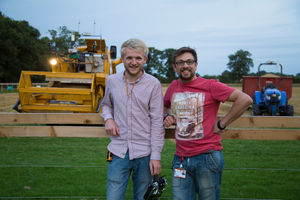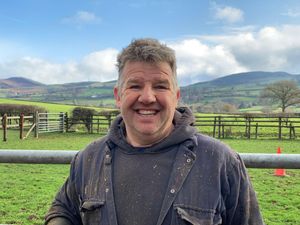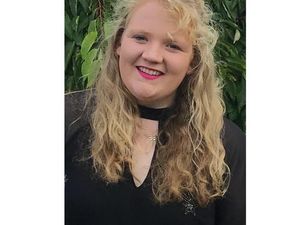Robot crop harvested
The ground-breaking Hands Free Hectare (HFHa), run by Harper Adams University and Precision Decisions, which aimed to be the first in the world to plant, tend and harvest a crop with only autonomous vehicles and drones, has come to an end after a successful harvest.

The Iseki tractor which was used earlier in the project for the spraying, drilling and rolling, was smaller and lighter than most tractors used nowadays and the combine harvester used was designed to harvest trial plots. The team believe that the use of smaller agricultural machines could improve soil and plant health.
Jonathan Gill, researcher at Harper Adams University, said: “
“If combines in the future were similar to the size of the combine we used in this project, which was a little Sampo combine with a header unit of only two meters, it would allow more precise yield maps to be created. They would also be much lighter machines."
Changeable weather meant the team had to adjust spraying times and harvest times due to the rain and while the solution is often to bring in bigger machinery to work quickly the Hands Free Hectare team believe the best solution is that in the future, farmers will manage fleets of smaller, autonomous vehicles. These will be able to go out and work in the fields, allowing the farmer to use their time more effectively and economically instead of having to drive up and down fields.
“But it’s going to take new talent entering the industry to develop the technology. We hope that this project has helped to inspire some people and shown them the range of interesting and innovative jobs that are available now in agriculture,”Jonathan said.
Martin Abell, mechatronics researcher for the industry lead, Precision Decisions, said: “We set-out to identify the opportunities for farming and to prove that it’s possible to autonomously farm the land, and that’s been the great success of the project.
“The whole project cost less than £200k, funded by Precision Decisions and Innovate UK. We used machinery that was readily available for farmers to buy; open source technology; and an autopilot from a drone for the navigation system.”
Despite the combine being 25 years old, it performed absolutely wonderfully.
The team now plan to make a Hands Free Hectare beer with the spring barley that has been harvested. They also hope to bring the project back by repeating the experiment, but with a winter crop.





